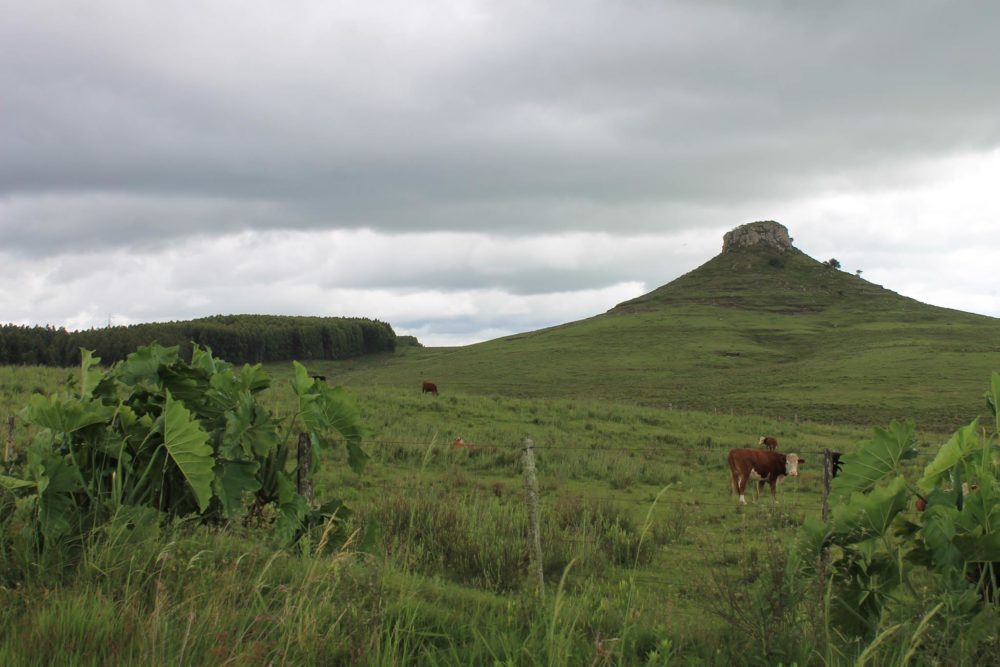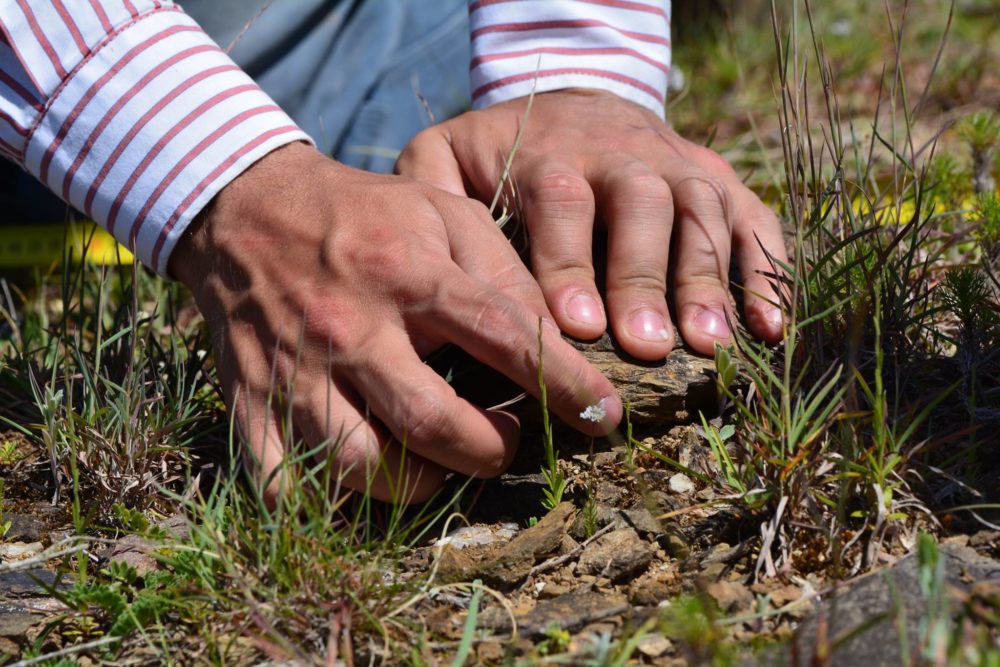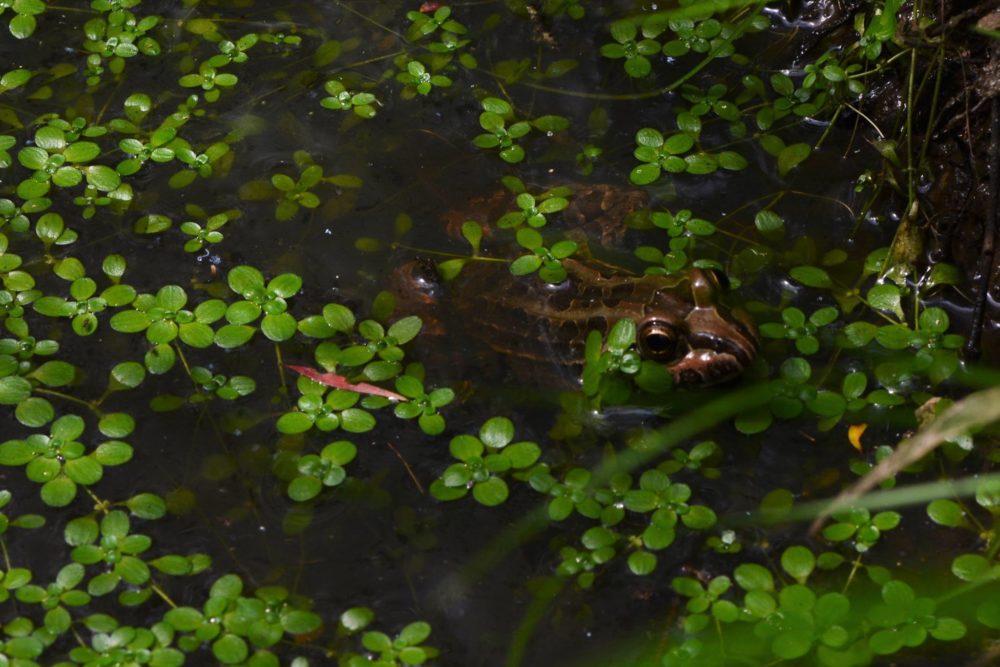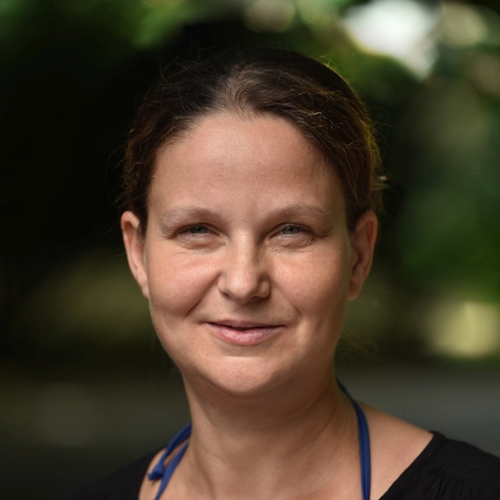THESys Project
Dynamic changes of land use and climate, as well biological invasions, are the result and at the same time the driving forces of a global change. They can prevent the sustainable use of natural resources and also reduce the stability of ecosystems and their biodiversity. Grasslands – one of the most important reserves of land for agricultural production and one of the most threatened biomes worldwide – are particularly affected.
For that reason, the transdisciplinary research project RuralFutures focuses on land-use changes in native South American grasslands, with a particular focus on Uruguay. While less than 1% of Uruguayan national territory enjoys conservation status, 95% is used for agriculture and forestry. In addition to the agro-industrial cultivation of soybeans for the globalised market, there has also been a rapid increase in afforested land. The area used for forestry is now 30 times bigger than it was 25 years ago. Mainly non-native species (i.e. eucalyptus, pinus) are being used. Although the ecological effects of these afforestation practices on ecosystems is the topic of much debate, there are few scientific studies available.
Objectives and methodology
The aim of the Rural Futures project is to demonstrate the complex environmental impacts on different land-use types and develop multifunctional, biodiverse and sustainable productive land-use concepts. RuralFutures works together with German and Uruguayan research institutes, government and non-governmental organisations, as well with national and transnational forestry and agriculture companies.
With 30 long-term monitoring stations along the climate gradient from the northwest to the southeast of Uruguay, we establish a complex evaluation system based conceptual framework of “Multifunctional and Sustainable Productive Landscapes” (see Wiggering et al. 2003, Holmes 2006, Taylor & Johnston 2009). With this evaluation system, we can collect reliable data on the ecological mechanisms and consequences of landscape change and define, together with local stakeholders, strategies for a multifunctional, sustainable, productive and biodiversity-friendly land use.
The RuralFutures long-term monitoring tasks will be handed over to students of local rural schools during the course of the project and integrated into their educational curriculum. In this way, we not only ensure long-term data collection and its transfer to the database, but also provide for new forms of scientific practice in schools. In this way, the RuralFutures project lays the foundations for critical, emancipatory environmental education for citizens and future scientists.
RuralFutures is funded by the German Federal Ministry for Education and Research (BMBF) and runs from 2014 to 2024 with funding of 2.6 million euro.
Output
Säumel, I., Ramírez, L., Santolin, J., Pintado, K. (2023) Disentangling diversity patterns in Uruguayan grasslands: climatic seasonality, novel land uses and landscape context drive species richness (accepted, Journal of Conservation Science and Practice, doi: 10.1111/csp2.12990)
Säumel, I., Ramírez, L., Tietjen, S., Barra, M., Zagal, E. (2023) Back to the future – Conservative grassland management for Anthropocene soils in the changed landscapes of Uruguay? (accepted, Soil: 10.5194/egusphere-2022-335)
Ramírez L., Säumel, I. (2023). Moderation and mediation of land use change! Inter-play between β-diversity and landscape structures in agri- and silvicultural modified grasslands of South America. Land Degradation & Development 1–13. doi 10.1002/ldr.4778.
Säumel, I., Alvarez, J., Ramírez, L.R., Barra, M. (2023). Quo vadis Patria Gaucha? Uruguayan Pathways of Land Use Change. Front. Sustain. Food Syst. 7:1083938. doi: 10.3389/fsufs.2023.1083938.
Ramirez, L., Säumel, I. (2023). There is glory in prevention! Regional spatio-temporal agrochemical runoff into aquatic ecosystems and its potential mitigation using multifunctional buffers. Journal of Hydrology, Regional Studies, 45, 101283. doi: 10.1016/j.ejrh.2022.101283
Säumel, I. Ramírez, L. (2022). Novel land uses shape metacommunity structures in neighbouring native forests: dataset across Uruguay. Data in Brief, https://doi.org/10.1016/j.dib.2022.108267
Pozo, P. & Säumel, I. (2022). Nurse species facilitate dry forests persistence in agricultural landscapes in Uruguay, Journal of Vegetation Science https://doi.org/10.1111/jvs.13127
Ramírez, L. R., & Säumel, I. (2022). Native forest metacommunity structures in Uruguay shaped by novel land-use types in their surroundings. Ecology and Evolution, 12, e8700. https://doi.org/10.1002/ece3.8700
Säumel, I., Ramírez, L.R. (2021). Woody species diversity and land use change legacy: dataset across Uruguay. Data in Brief, https://doi.org/10.1016/j.dib.2021.107545
Ramírez, L.R., Säumel, I. (2021). Beyond the boundaries: Do spatio-temporal trajectories of land-use change and cross boundary effects shape the diversity of woody species in Uruguayan native forests? Agriculture, Ecosystems & Environment, https://doi.org/10.1016/j.agee.2021.107646
Säumel, I., Herrera R., Barcia L., Barra, M. (2017). Bridging the gap between Environmental and Science Education: The ‘Student Science Approach’. In Nachhaltigkeitswissenschaften und die Suche nach neuen Wissensordnungen (Hrsg. Pfister Th. in Nachhaltigkeitswissenschaften und die Suche nach neuen Wissensordnungen Metropolis Verlag).
Pozo, P. & Säumel, I. (2018). How to Bloom the Green Desert: Eucalyptus Plantations and Native Forests in Uruguay beyond Black and White, Perspectives in Forests 2018, 9(10), 614; https://doi.org/10.3390/f9100614.
Project Partners
University of the Republic, Montevideo, Uruguay
National Environmental Agency (DINAMA) of the Ministry of Housing, Territorial Order and Environment (MVOTMA), Montevideo, Uruguay
National Forestry Agency (DGF) of the Ministry of Livestock, Agriculture and Fisheries (MGAP), Montevideo, Uruguay
National Environmental Education Network for Sustainable Development (ReNEA) of the Ministry of Culture and Education (MEC), Montevideo, Uruguay
Rural Education Department of the National Public Education Administration (ANEP), Montevideo, Uruguay
National Institute for Agricultural Research (INIA), Montevideo, Uruguay
Leibniz Centre for Agricultural Landscape Research (ZALF) e.V., Müncheberg near Berlin, Germany
We are also establishing good contacts with key agricultural producers and cooperating with local NGOs such as REDES / Friends of the Earth Uruguay.






